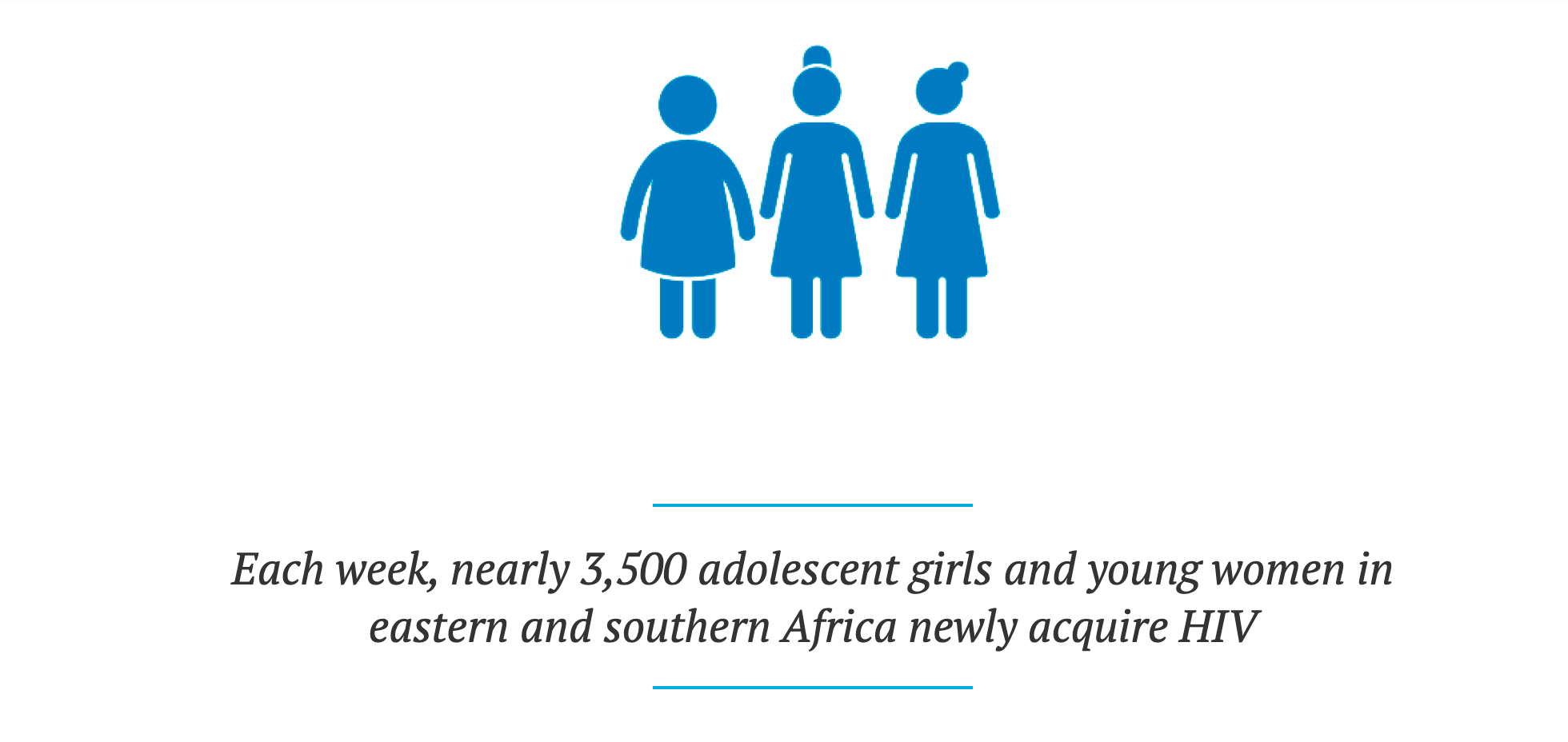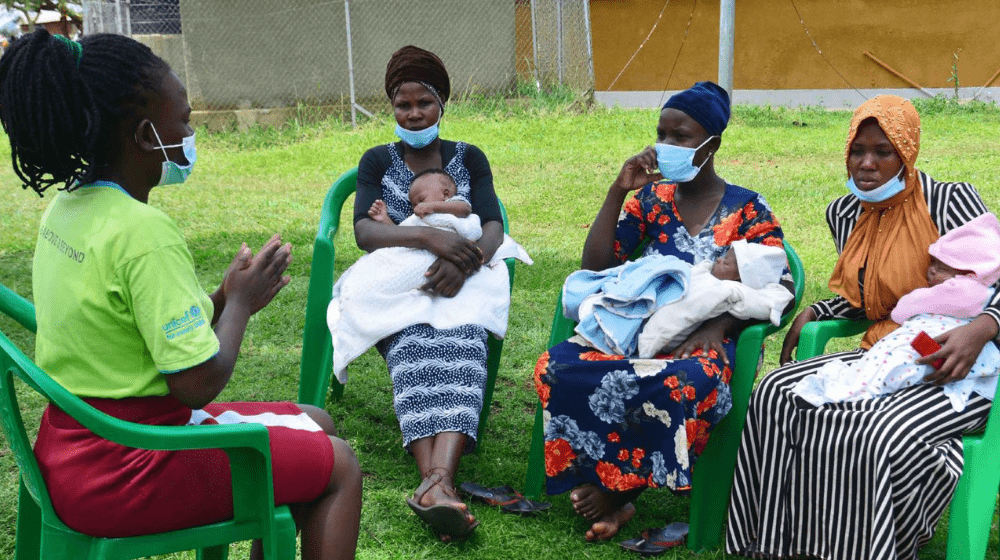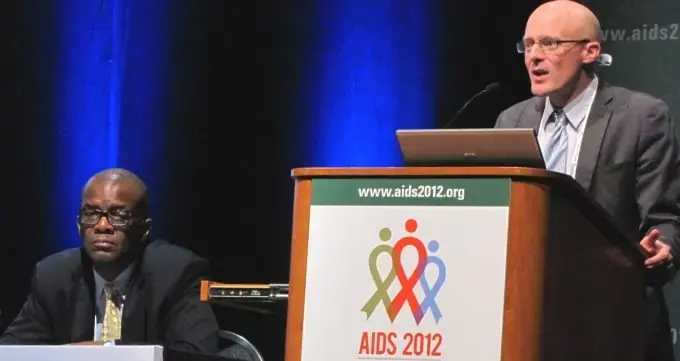NAMAYINGO TOWN, Uganda — Young people find it easy to talk to 20-year-old Rebecca. Not only is she confident, warm and knowledgeable, particularly about sexual and reproductive health and rights (SRHR), but she openly shares her life challenges.
Despite her young age, Rebecca has experienced many life challenges. She became pregnant while still a teenager, subsequently missed out on an education, and is also living with HIV. Like the other peer educators working at the Buyinja Health Centre in Namayingo town, in the Eastern region of Uganda, Rebecca is willing to disclose her HIV status to encourage other adolescents and young people living with HIV to access care.
The peer educator programme is supported by the AIDS Information Centre and the non-governmental organization (NGO) Baylor Uganda, one of the partners collaborating with the 2gether 4SRHR programme, a four-year UN programme run in partnership with the Swedish International Development Cooperation Agency (SIDA). The aim of the 2gether 4SRHR programme is for the UN agencies to work together as one along with partners to improve SRHR. This includes scaling up client-centred, quality-assured, integrated and sustainable services in SRH, HIV and sexual and gender-based violence, and empowering young people to exercise their SRH rights. This should in turn accelerate progress towards Sustainable Development Goal (SDG) 3 (to ensure healthy lives and promote well-being for all ages) and SDG 5 (to achieve gender equality and empower all women and girls).
In this adolescent and young people’s programme, UNFPA supports peer educators attached to health facilities to accompany health workers, often midwives, to visit schools and community centres, delivering SRHR information and services. The peer educators also mobilize their peers for interest group discussions to assess the quality of the SRHR services they receive. They present their ideas on how to improve adolescent and young people’s health outcomes at the health facility management committee meetings and at community forums (Barazas).
In Uganda and most of the East and Southern Africa region, improving SRHR outcomes, particularly for adolescent and young people, has been a challenge. In many countries in the region, adolescent and young mothers have higher rates of unplanned pregnancies, lower uptake of antenatal and postnatal care, and those living with HIV have poorer adherence to treatment regimens and lower viral load suppression.3 In addition, each week, nearly 3,500 adolescent girls and young women in eastern and southern Africa newly acquire HIV. Despite representing only 10 per cent of the population, this amounts to 27 per cent of all new infections across all ages in the region and 70 per cent of all new infections among adolescent girls and young women globally.

The 2gether 4SRHR programme has supported peer educators, like Rebecca, to play a key role in the delivery of integrated health services to their peers. Rebecca shares how she gives talks to young people at the health centre, visits the homes of her peers and links them to available services, including family planning, sexual and gender-based violence services and HIV testing.
She is particularly proud of her work with pregnant adolescents and adolescent mothers, regardless of their HIV status. She comments they feel more at ease talking to her rather than with the older midwives. “I see how they are suffering. They are shy, and they can’t disclose what they want to.”
I am able to talk to my peers about the importance of adhering to antiretroviral drug treatment.
Rebecca adds that she focuses on the prevention of HIV and sexually transmitted infections and support to young people living with HIV. “I am able to talk to my peers about the importance of adhering to antiretroviral drug treatment and the importance of bringing their babies at the correct time to have their blood samples tested.”
One of the main challenges Rebecca faces as a peer educator is advising her peers to disclose their HIV status to their partners. “Many of them fear that their partner will leave them,” says Rebecca. Although Rebecca encourages them to disclose their HIV status, she is sympathetic to their situation. “I tell them to first assess how the partner will react. It takes time.”
To help them, Rebecca shares her own experience. She disclosed her HIV status to her husband, the father of her daughter, and he supported her as she went on the prevention of mother-to-child transmission (PMTCT) of HIV programme. She says although her husband tested HIV negative, he has been understanding and they continue to live together. Moreover, her 7-month-old daughter has so far tested HIV negative and is doing well.
Besides empowering her peers, Rebecca wants to improve her own life too. “If I can get a sponsor, once I have weaned my baby, I want to return to school,” she says with determination. “My dream is to be a midwife.”




